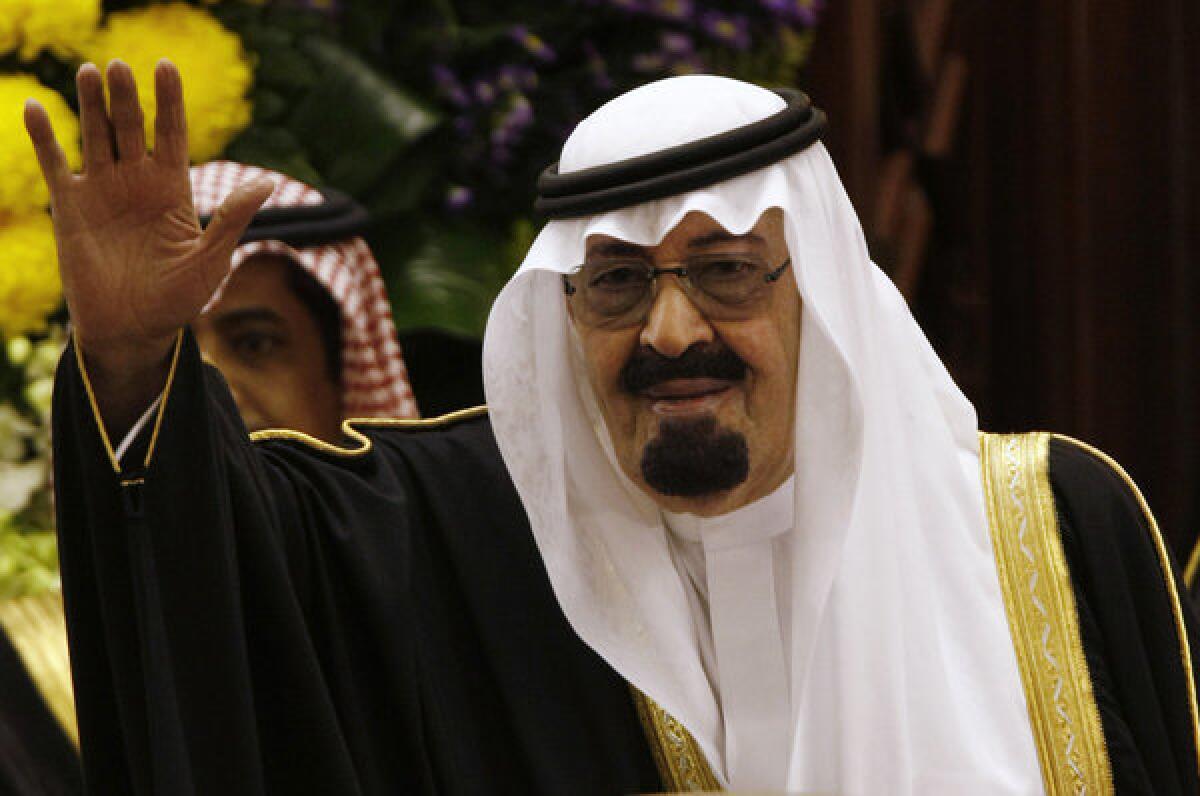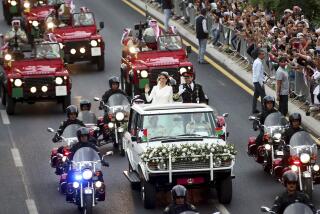Saudi king chooses women for spots on advisory council

- Share via
The king of Saudi Arabia has named dozens of women to serve on his advisory council, a new step in the ultra-religious country where women remain strictly confined in daily life.
Thirty women were among 150 people chosen Friday to serve on the council, a purely advisory body. King Abdullah also insisted that women make up at least a fifth of the members of the advisory council in the future, setting out the quota in a royal order.
“Women selected as members of the Shura Council will enjoy full rights of membership, be committed to their duties, responsibilities and assume their jobs,” said the royal order published Friday by the official Saudi Press Agency.
Plans to grant women seats on the Shura Council were first announced by Abdullah more than a year ago, one in a batch of reforms meant to bolster the standing of Saudi women. At the time, the king also said that women would be allowed to vote and run for local office, gradual moves that could nonetheless run afoul of Saudi Arabia’s ultraconservative clerics.
By pressing ahead with bringing women onto the council, Abdullah appears to be trying to burnish his reputation as a reformer. Yet critics charge that his attempts to propel progress have been limited in deference to religious conservatives who help support the Saudi monarchy.
In the Friday announcement, the king reassured religious conservatives by stating that women on the council would follow Islamic law, including wearing the hijab, and would be seated in a special area with its own entrance and exit constructed to prevent them from touching men.
Women had been appointed as advisors to the body in previous years but have never been part of the Shura Council, the Associated Press reported Friday.
The decision “gave confidence to women to take part in important decision-making matters in the country,” poet and new council appointee Thuraya Arrayed told Al Arabiya. “I expect this decision to open doors for qualified women to take part in all fields and not just in politics but in all areas.”
Some activists complained that even with women, the Shura Council remained a toothless body of appointees. The changes “ignored Saudis’ demands of electing the members and increasing the council powers!” tweeted Manal Sharif, one of the activists behind the campaign to allow women to drive and enjoy other personal freedoms. “It still cannot pass or enforce laws.”
Activists were also quick to point out that Saudi women are still barred from driving and forced to obtain male permission to work or travel, rendering them legally the same as minors. The kingdom recently began sending text messages to Saudi men when their wives or sisters try to leave the country, a system feminists deride as a digital leash.
“Women in Saudi accountable enough to be executed and responsible enough to be parliament members but still have guardians and can’t drive cars,” Saudi blogger Eman Nafjan wrote on Twitter. A Sri Lankan woman was executed this week in Saudi Arabia on charges of killing a baby in her care.
It’s “great to have women on the Shura,” Nafjan later added, but they are still appointed, not elected, making the move a “status symbol more than agent of change.”
ALSO:
French troops in Mali; Hollande vows to stop Islamists
Palestinians pitch tents in area Israel plans to develop
Syrian rebels say they’ve seized strategic Taftanaz air base
More to Read
Sign up for Essential California
The most important California stories and recommendations in your inbox every morning.
You may occasionally receive promotional content from the Los Angeles Times.












